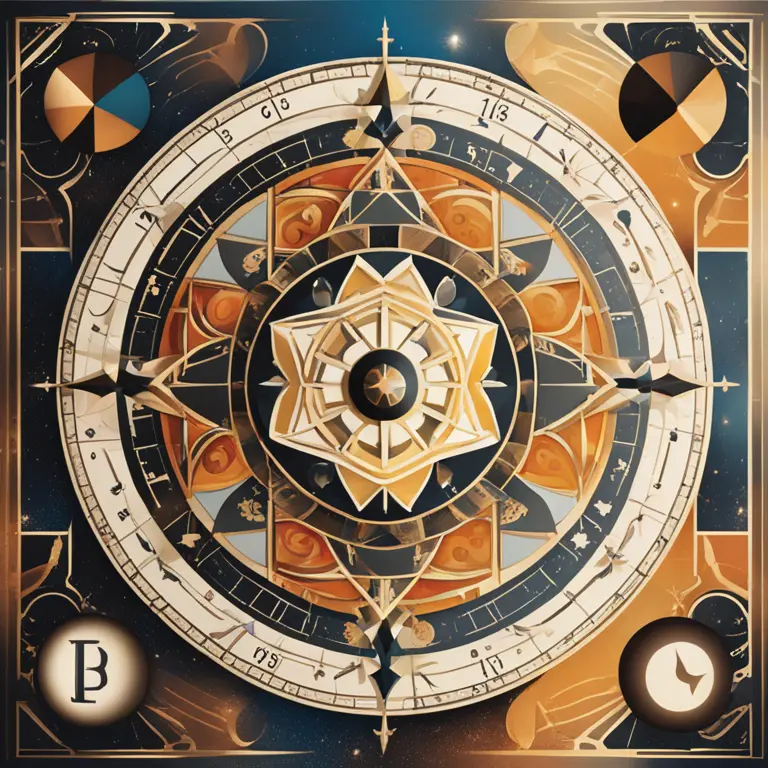
The Truth about Numerology: Fact or Fiction?
Delve into the realm of numerology to assess its credibility and whether it holds any truth in divining our life paths and personalities.
article by Sofia Ferguson
Introduction to Numerology
Numerology is an ancient practice that believes numbers hold a mystical significance in understanding the world and ourselves. It is often associated with astrology and similar metaphysical systems, offering insights into personality traits, life events, and future possibilities based on numerical calculations. In the modern context, numerology continues to intrigue individuals searching for meaning beyond the physically tangible, but does it hold any truth? Let's unravel the numerical tapestry and evaluate the credibility of numerology from various perspectives.

Numerology's Historical Roots
The practice of numerology spans centuries and cultures, with roots tracing back to the mathematicians of Pythagoras, the Kabbalah of Jewish mysticism, and Chinese divination systems. These traditions suggest a harmonious relationship between numbers and the cosmos. Despite its rich historical background, sceptics question the empirical evidence supporting numerology's claims. Advocates, however, argue that its persistence and adaptability to modern times reflect an inherent value and truth in its core principles.

Scientific Scrutiny and Numerology
From a scientific standpoint, numerology faces criticism. The systematic collection of empirical evidence through observation, experimentation, and analysis does not substantiate numerological claims. As a pseudoscience, numerology lacks the rigorous tests and reproducibility required in scientific methodologies. Critics highlight the Forer effect, where individuals perceive vague, general statements as exceptionally applicable to themselves, thus questioning the specificity and accuracy of numerological readings.

Psychological Perspectives on Numerology
Psychology offers a middle ground, acknowledging that while numerology may not pass scientific rigor, it can fulfill psychological needs. People often seek patterns and meaning, especially during uncertain times, and numerology can provide comfort and the illusion of control. Personal testimonies and anecdotal evidence suggest that some individuals derive considerable personal insight and satisfaction from numerological practices. Thus, its truth may not lie in its literal accuracy but in its subjective value to the individual.
Numerology in the Digital Age
With advances in technology, numerology has found a renewed audience through online platforms. Algorithm-driven numerology applications and social media have simplified personalized numerological readings, making them more accessible than ever. Supporters argue that this technological embrace signifies a modern validation of numerological methods. Yet, it also poses the question: does the ease of accessibility increase belief in its truth, or merely contribute to a trend in mystical entertainment?
Future Directions for Numerological Practice
As we look ahead, numerology's true test might lie in its ability to adapt and evolve in a world increasingly driven by data and analytics. Could there be a convergence of numerological insights and big data analysis to offer more personalized and meaningful experiences? While unlikely to gain empirical support, the fields of artificial intelligence and machine learning could propel numerology into novel territories, challenging the boundaries between mysticism and science.
Published: 1/16/2024
Modified: 1/16/2024
More predictions
Come back here soon to learn more about yourself and your future


Your Daily Numerology Horoscope Revealed
Discover what the numbers reveal about today. Tap into the energy of numerology to guide your day with our daily numerology horoscope.


Numerology: The Historical Insights
Dive into the ancient beginnings of numerology and discover its mysterious origins and the thinkers who contributed to its development over time.


The Roots of Numerology: An Ancient Practice
Tracing the roots of numerology, this article delves into the ancient beginnings and figures attributed with the creation of this mystical system.